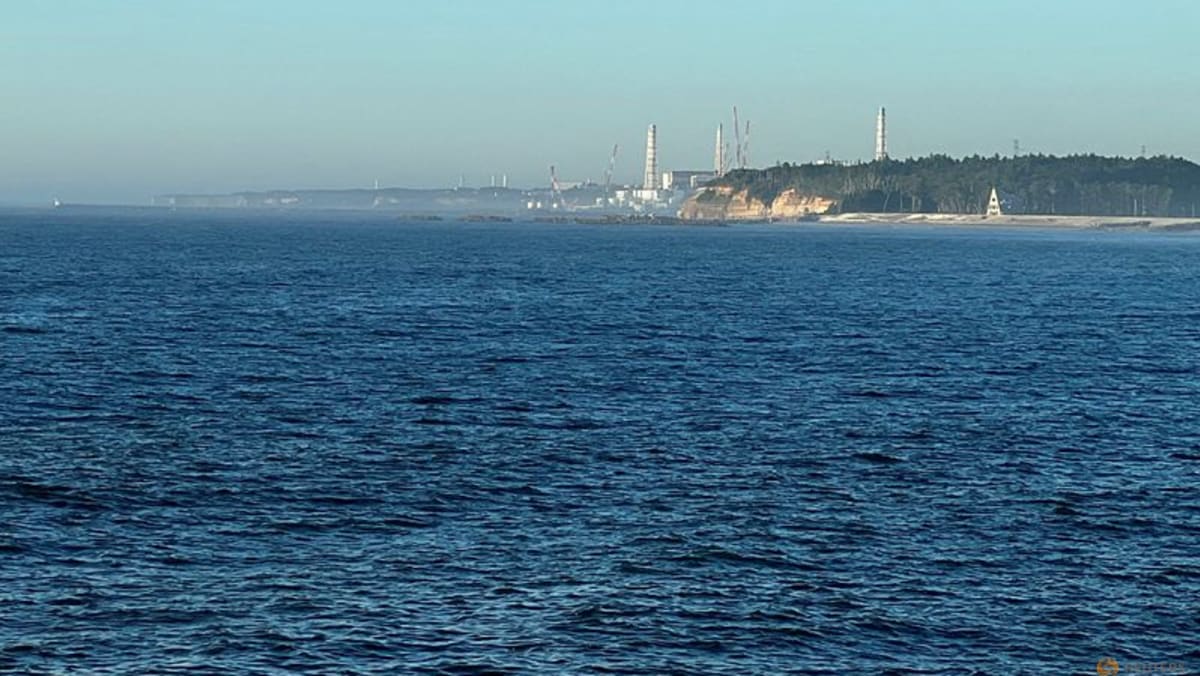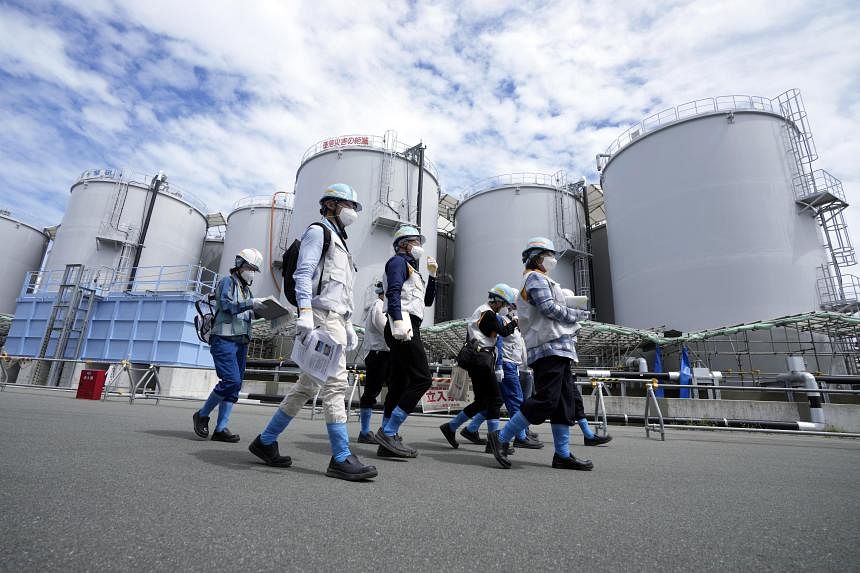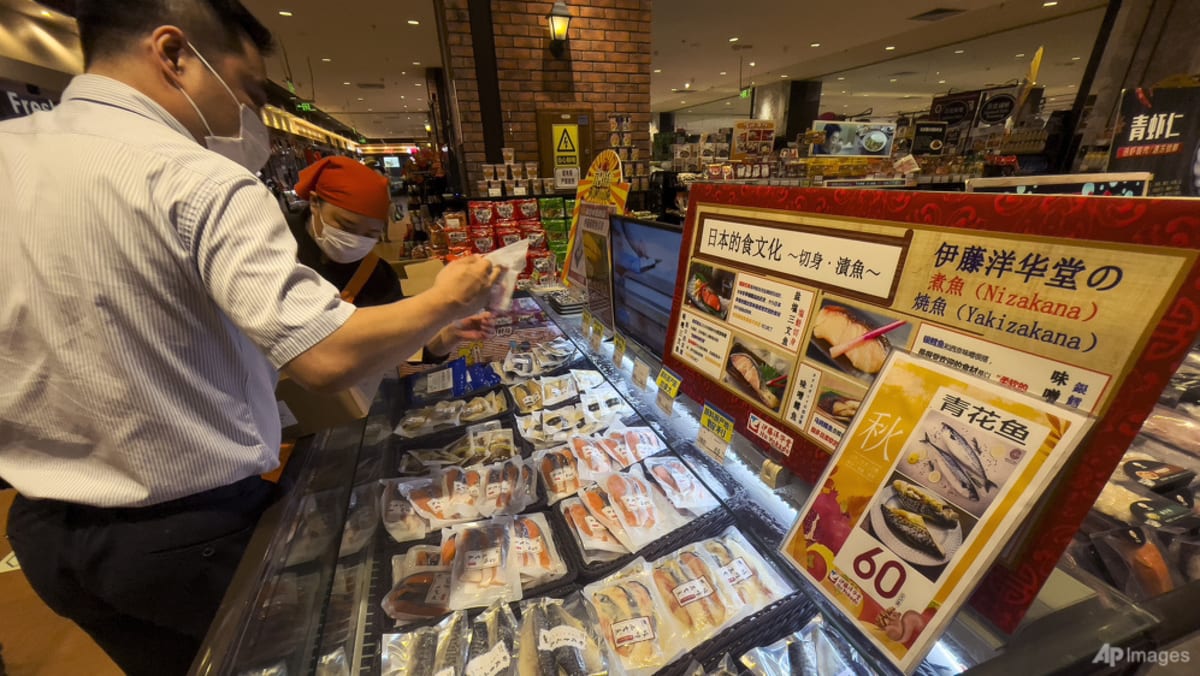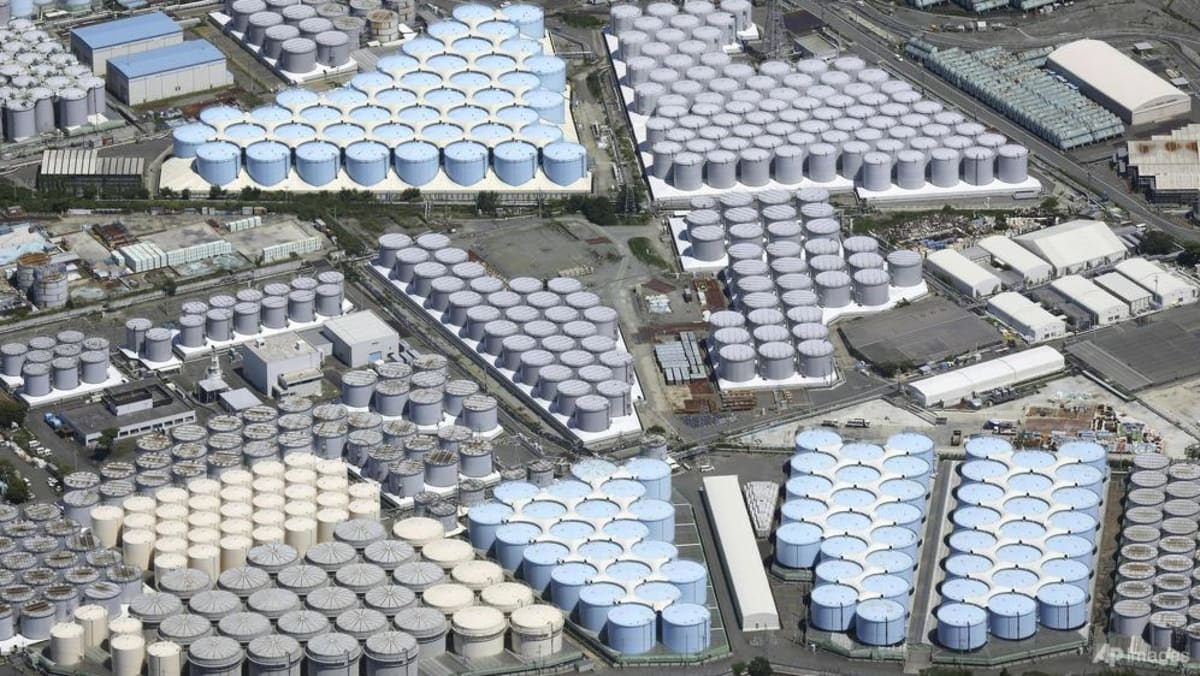
TOKYO: Japan said on Monday (Aug 28) it was extremely regrettable that there were many instances of harassing phone calls from China regarding the release of treated radioactive water from the Fukushima nuclear power plant into the Pacific.
Japan started the water discharge on Thursday in a key step toward decommissioning the Fukushima plant, which suffered triple meltdowns after being hit by a tsunami in 2011 following a powerful earthquake. China strongly opposes the move.
"A lot of harassment phone calls believed to be originating from China are occurring in Japan ... These developments are extremely regrettable and we are concerned," Chief Cabinet Secretary Hirokazu Matsuno, the chief government spokesman, told a regular news conference.
Such calls prompted vice foreign minister Masataka Okano to summon the Chinese ambassador, Japan's foreign ministry said.
In a statement, the ministry said the calls were also occurring at Japanese facilities in China and urged the government to take appropriate action promptly and ensure the safety of Japanese citizens.
China's foreign ministry did not immediately respond to a request for comment.
The Fukushima city hall started receiving calls with country code 86, which is for China, on Thursday, and the number of such calls exceeded 200 the following day, flooding phone lines and disrupting city employees' ordinary work, a city official said.
On the same day, elementary and junior high schools in the city, 60km north-west of the crippled plant, received 65 similar calls, he said.
When a person who understands Chinese took one of those calls, the caller made a comment to the effect that, "Why are you releasing tainted water into the Pacific Ocean, which is a sea for everyone," the official said.
Other municipalities, hotels and restaurants have also been getting such calls since the day the water release began, domestic media said.
In China, a rock was thrown at a Japanese school in the coastal city of Qingdao on Thursday, according to the Consulate-General of Japan in the city.
"We have been speaking to the city police constantly since this incident took place regarding security concerns," the Consulate-General told Reuters on Monday.
Fukushima plant operator Tokyo Electric Power (Tepco) has been filtering the contaminated water to remove isotopes, leaving only tritium, a radioactive isotope of hydrogen that is hard to separate.
Tepco dilutes the water until tritium levels fall below regulatory limits before pumping it into the sea.
China, however, said the Japanese government had not proved that the water discharged would be safe and issued a blanket ban on all aquatic products from Japan hours after Tokyo went ahead with the release.
https://news.google.com/rss/articles/CBMiiQFodHRwczovL3d3dy5jaGFubmVsbmV3c2FzaWEuY29tL2FzaWEvamFwYW4tc2F5cy1oYXJhc3NpbmctY2FsbHMtY2hpbmEtZnVrdXNoaW1hLW51Y2xlYXItcGxhbnQtd2F0ZXItcmVsZWFzZS1leHRyZW1lbHktcmVncmV0dGFibGUtMzcyODk2MdIBAA?oc=5
2023-08-28 07:12:16Z
2372431394




